Russia Expects More From Putin
His opponents in last week's presidential election did not stand a chance, but 12 years into the Putin regime, Russians are more demanding.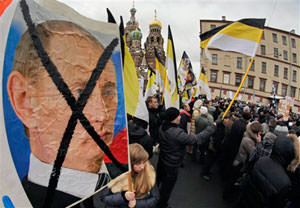
The name of Russia’s new — and old — president is Vladimir Putin. He won the presidential election of March 4 with 64 percent of the vote, a number slightly higher than predicted in polls. Those who had hoped for a second round of elections were disappointed. Putin’s opponents did not stand a chance against the prime minister’s well-oiled campaign. His presence on television was overwhelming, and he used numerous “official” trips to the provinces to promote his candidacy. The Communist candidate, Gennady Zyuganov, came in second with just over 17 percent of the vote. Billionaire Mikhail Prokhorov, whose candidacy had received much attention (see my recent article in Truthdig), got almost 8 percent — a respectable showing considering the circumstances.
Putin has towered over Russian politics for the past 12 years, staying in charge even when he handed over the reins of the presidency to Dmitry Medvedev for four years. When Putin finishes his extended presidential term, he will have ruled Russia for the same amount of time as Leonid Brezhnev did in the Soviet Union — with the possibility of an additional six years from 2018 to 2024.
Addressing tens of thousands of supporters on the evening of his election, Putin stated that it had been a fair and clean contest. With tears in his eyes, he declared that the Russian people had passed a “test of political maturity.” And, directed at the protest movement in the major Russian cities, he added: “We showed that our people know how to distinguish between the desire for change and renewal, and political provocations that pursue the sole objective of undermining Russia’s statehood and usurping power. Russia’s people showed today that such scenarios will get nowhere here.”
Putin’s remarks were directed against the organizers of the mass protests that attracted hundreds of thousands of demonstrators since the Duma elections on Dec. 4. Unlike the opposition parties represented in the Duma, which are loyal to Putin, these protesters reject the tightly controlled political system in Russia. Fearing further mass protests, the government mobilized 12,000 soldiers and policemen in the capital. Fifteen thousand demonstrators gathered for a protest meeting in downtown Moscow the day after the election. When some refused to disperse, 250 were detained, among them various organizers of the protest. The security forces released them the next morning, after they had paid a fine.
Not only this unsanctioned opposition, but also Zyuganov refuse to recognize the election and demand a fraud investigation. The nongovernmental organization GOLOS (Voice) has documented almost 5,000 cases of fraudulent practices on its website. These were recorded by thousands of election observers who received training from opposition groups and the Prokhorov campaign.
The 180,000 surveillance cameras that the Russian government had installed at a total cost of almost half a billion dollars also contributed to the discovery of falsifications. These cameras and transparent voting booths were erected in response to massive criticism after the Duma elections. Although there were technical problems, millions of Russians could watch the elections online via live stream. Interested international observers were able to acquaint themselves with Russian voting culture, which included the sale of perfumes, the provision of snacks and drinks and numerous impromptu dance parties.
More disputed than the cameras’ entertainment value, however, is their usefulness in uncovering voting fraud. Although the Central Election Commission maintained that it had prevented large-scale fraud and Putin stated that at most 1 percent of the votes were falsified, independent observers begged to differ. GOLOS points out that the cameras were set up far away from the ballot boxes, and that voters often covered them with their bodies when they cast their vote. Moreover, many people voted at their workplace (under the supervision of their superiors), and these polling stations had no cameras. They were also unable to detect “carousel voters,” groups of paid activists who were ferried to various polling stations to cast multiple votes.
Crucially, however, the cameras could not monitor manipulations after the polling stations closed. This kind of tinkering with results is considered to be far more prevalent than the more obvious violations during the voting process. Results like the 99.73 percent that Putin received in Chechnya certainly seem too good to be true. Additionally, observers noted that Putin’s overall result improved throughout election day, a surprising fact since exit polls clearly indicated a poorer showing in the big cities, which were counted last. The League of Voters, founded by opposition leader Boris Akunin, released its own count, which gave Putin only 53 percent of the overall vote.
This clear evidence of voter fraud certainly taints Putin’s legitimacy. Even by the skeptics’ count, however, Putin received a majority of votes. His popularity remains considerable. Those who rely on the Russian state for their livelihoods — retirees, workers in state-run industries and the rural population in the provinces — credit Putin with securing their pensions, endangered jobs and agricultural subsidies. Large parts of the economic elite, furthermore, continue to support Putin because they see him as a guarantee against inquiries into the origins of the fortunes they made during the privatization process of the 1990s. Moreover, many still consider Putin to be an important symbolic figure who represents the country’s unity.
Regardless, it is doubtful whether Putin will simply be able to return to business as usual after the elections. The ongoing protests show that Putin’s support among educated and urban Russians is declining rapidly. This middle class, which has profited most from the stable economic growth under Putin, is nonetheless increasingly impatient with the lack of political participation and Russia’s endemic corruption.The government must secure the support of these urban and educated strata, as they are the keystones to any modernization project for Russia. Putin, and even more Medvedev, staked a lot of their legitimacy on the government’s ability to turn Russia into a competitive force in global markets, rather than simply a provider of natural resources. The financial crash of Russia’s stock markets in 2009 and the gaping hole that any drop in global oil prices leaves in the state budget have made it clear that Russia’s current economic system is not viable in the long run. Under Medvedev, even pro-government think tanks such as the Institute of Contemporary Development (INSOR) and the Center for Strategic Research (CSR) published highly critical studies that demand urgent reform. Putin is no longer in a position to ignore, much less silence, these influential voices.
It is equally clear that modernization is impossible without at least a gradual liberalization of the political system. In recent months, the government has taken some steps in this direction. In response to the protests after the Duma elections, Medvedev submitted a bill that would reintroduce the popular election of regional governors. Their appointment by the president was repeatedly criticized as undemocratic. Moreover, Medvedev ordered a review on March 5 of imprisoned oil tycoon and Putin opposition funder Mikhail Khodorkovsky’s trial, and Putin announced that the bureaucratic obstacles to founding new political parties would be lowered considerably. Putin has raised the possibility of oligarchs paying a one-time tax on the fortunes they made during the 1990s, an attempt to placate popular anger.
At the same time, the Kremlin is attempting to split the opposition by promoting a new liberal party. Prokhorov announced that he will start his own party. Putin received the news favorably, even stating that he was considering offering Prokhorov a post in his new government.
It is too early to see whether these reforms will actually be implemented and whether they will take the wind out of the opposition’s sails. Much will depend on its ability to continue to mobilize and thus keep up the political pressure on Putin. The first demonstration after the election drew considerably fewer participants than earlier protests. Another demonstration on March 10 showed a similar trend and revealed tensions among the leaders of different opposition groups. Some, like the Left Front leader Sergei Udaltsov, demand more radical means such as unsanctioned occupations of public squares, while others are more willing to compromise. Putin has repeatedly shown himself to be a skillful political tactician, and he may well succeed in dividing the opposition. This, however, would result less in renewed support for the government and more in frustration and political passivity.
The fundamental question, however, is to what extent the basis of Putin’s program — limited redistribution of oil revenues, a tightly controlled political system and almost boundless opportunities for enrichment for a small elite circle — is still sound. As the editors of Gazeta.ru point out, Putin’s system has lifted many Russians from the dire poverty of the 1990s. Nonetheless, it has not solved the fundamental problems of the country in spite of full government coffers. Deteriorating infrastructure, bad living conditions for the majority of Russians, high mortality, inadequate state services, the lack of a globally competitive industry and the brain drain continue to present huge challenges. The gap between center and periphery, rich and poor, continues to widen.
Whether Putin’s recipes for the past 12 years will work for another 12 is highly doubtful. Can the aging ruler find new ones?
Ivo Mijnssen is a Russia scholar who specializes in youth movements in contemporary Russia, Soviet patriotism and the memory of World War II. In the spring, his book on the youth movement Nashi will be published by the ibidem-Verlag in Germany.
Your support matters…Independent journalism is under threat and overshadowed by heavily funded mainstream media.
You can help level the playing field. Become a member.
Your tax-deductible contribution keeps us digging beneath the headlines to give you thought-provoking, investigative reporting and analysis that unearths what's really happening- without compromise.
Give today to support our courageous, independent journalists.
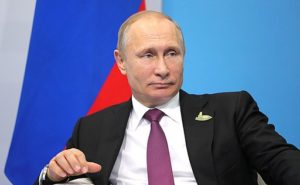
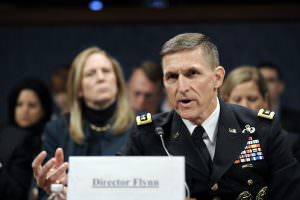
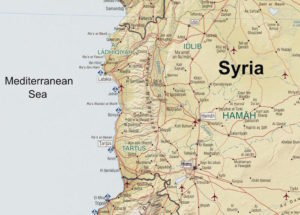
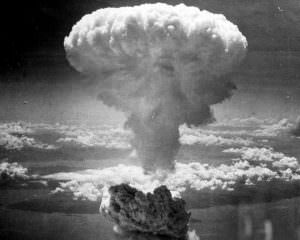
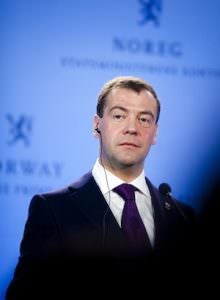
You need to be a supporter to comment.
There are currently no responses to this article.
Be the first to respond.